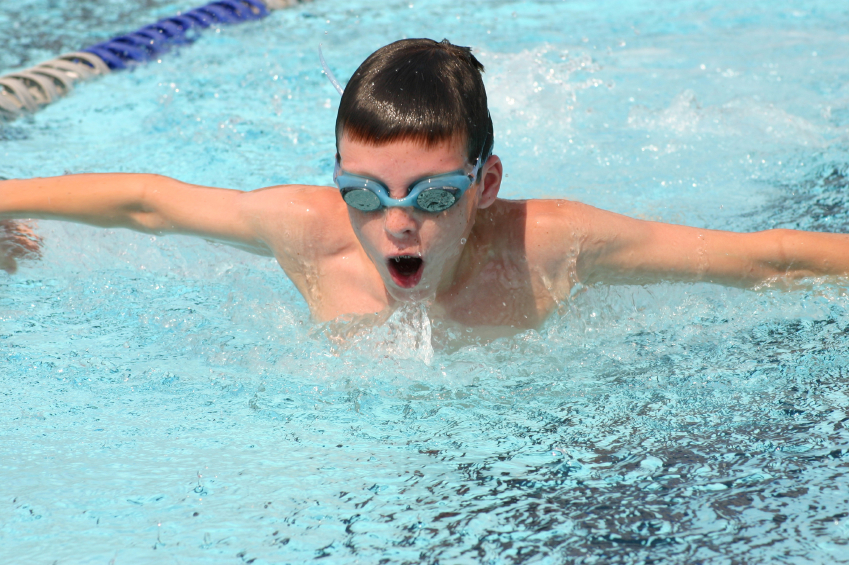My son is a member of a VIP swim team. The team is not
restricted to children with autism only, nor is it restricted to only children.
There are adults on the older team. One adult, for example, is blind.
On my son’s team, which is a team designed for less
experienced swimmers, there are kids with Downs Syndrome and other afflictions.
Some kids have to swim with an instructor, but others are fully independent.
There are all ages and abilities in this VIP league.
Is there a difference
between an individual sport and a team sport for our kids?
The chemistry on the swim team is a bit different than the
chemistry on the VIP soccer team, for example. The soccer team consists mostly of
kids on the autistic spectrum. Some are mild, like my son, others are less
functioning. One is non-verbal, and a few of them need assistance in order to
participate.
Mostly, the concept of the sport itself is different.
Soccer is a team sport and the soccer instructors want to
teach the players to participate as a team. What that means is a different
approach to coordination and performance.
I sometimes marvel at the soccer coach as he tries to
motivate our kids to pass to one another and play as a team. He expends a great
deal of energy mixed with tons of enthusiasm.
The way I see the swimming program, the swim instructors
focus more on individuals. They teach strokes and try to build up endurance. For
example, a swimmer should be able to learn four or five different strokes while
consistently doing them lap after lap. Eventually, they learn to swim with some
speed.
Swimming is an individual sport when competing (unless
you’re in a medley). Yet, each individual swimmer is also a part of a team.
Toss in a VIP team, where kids have a large range of issues (spectrum or not), and
the challenges for instructors is daunting.
How do swimmers
practice a team mentality?
As opposed to soccer games, swimming teams have swim meets.
The kids race each other (typically they are paired by similar ability in
groups of six or seven). Each kid will have, at least, three races. Some will
try multiple strokes. (Free style is the most common, but our kids also learn
butterfly, breaststroke, and backstroke).
As an athlete and sports fan, I have attended thousands of
sporting events. Some I have participated in over the years, others I was
purely a spectator.
However, as a 47-year-old, I had never attended a swim meet
until last fall. It was not only my first swim meet, but my first VIP swim
meet.
VIP swim meets are big events with all the VIP teams
represented. This means that there are lots of people in attendance—swimmers
and folks there to watch. There are many heats (races) but we learned the hard
way that swimmers often need to wait up to an hour between races.
Waiting for our kids is not always easy, especially in a
situation with lots of people and lots of noise. During my sons’ first VIP swim
meet, I found myself walking him around to distract him.
However, my son was not the only one bouncing all over the
place, there were several kids who had to regulate their bodies for the four
hour event.
Now that my son has experienced two VIP swim meets, we feel
like we’re veterans. My son learned to root for his fellow swimmers when he
wasn’t in a heat and he also learned that he was expected to try to compete at
a level above a regular swim practice.
How was a swimming
meet different than a soccer game?
IMHO, soccer games pretty much resemble soccer practices.
Swimming meets were a bigger challenge. Not only for the
reasons I already mentioned, but because my son had to actually learn how to
compete.
For example, my son struggled with the difference between
swimming a 25 (one length of the pool) and a 50 (two lengths, down and back).
I had to coach him to turn around and go all the way back as
quickly as possible. He was not used to this concept.
A second example came during his second swim meet when he was
supposed to swim the butterfly stroke. Unfortunately, he forgot what stroke he
was supposed to swim and began to swim the free style instead. He later said he
got too excited and simply forgot.
Is there a larger
difference?
I actually think there is a larger difference between the
soccer league and the swimming for my son. My son likes the soccer, but the swimming
actually feels good on his body. He does it three times a week for one hour
each time. And, if you throw in a swim meet, that’s a lot of swimming in one
week. But, all of it feels good to him. It regulates his body while exercising
it.
Swimming is a wonderful sport for our kids. Many kids on the
spectrum have trouble learning a sport that involves an entire team
interaction. They have trouble taking direction from a typical coach and
trouble with the team concept.
I’ve played on enough teams to know that my son would not
like the experience that I had.
Swimming is great for our kids. Learning how to swim is
practical and beneficial for children on the spectrum. And, lots of fun, too.





